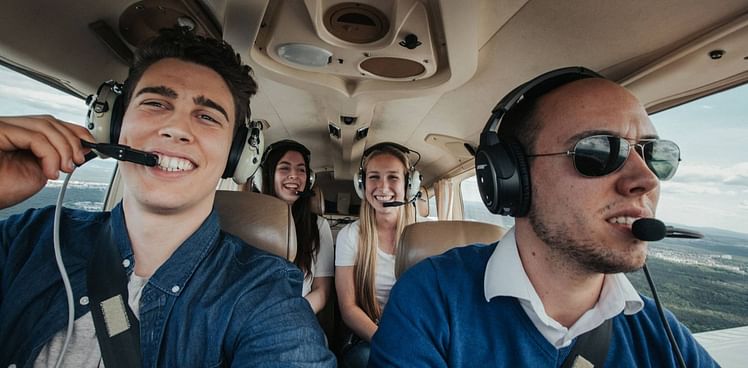
Regulation and EASA Charter
A clear European regulation
Flight sharing is fully legal in the European Union according to the European Regulation (EU) No 965/2012 and it has been confirmed by the EASA itself in this letter. Private pilots are allowed to share their flights and costs with passengers in non-complex aircraft carrying no more than 6 persons including the pilot, and are allowed to advertise these flights. It is illegal for pilots to make any profit, however it is possible for them to share the direct costs of the flight.

Following the EASA Charter
We are proud to have signed a Safety Charter with the EASA. This Charter has been developed in cooperation with the European Aviation Safety Agency in order to promote the safety of non-commercial General Aviation flights in light aircrafts. By signing this Charter, Wingly commits to adhering to its principles, responsibilities and values.
Pilot Checklist for Wingly passenger handling
The European Aviation Safety Agency has built a Pilot Checklist of the necessary steps for pilots to follow when communicating to passengers about safety and logistics. The checklist is of interest to both pilots and passengers as it's aim is to ensure that pilots and passengers can share the flight in the safest conditions possible.
The Civil Aviation Authorities (CAA)
The UK Civil Aviation Authority (CAA) actively supports cost-sharing as a way to promote general aviation and make flying more accessible. Under the revised CAA framework effective 1 October 2025, cost-sharing flights remain fully legal provided they comply with the updated conditions, including shared direct costs only, equal pilot contribution, and mandatory passenger declarations.
Wingly is proud to be a signatory of the CAA Cost Sharing Charter, which confirms our commitment to transparency, safety and compliance with all regulatory requirements. This charter, together with the CAA’s official guidance, reinforces that flights organised via Wingly are conducted within a clearly defined legal framework.
Wingly Pro flights
Wingly Pro flights are commercial flights offered by Air transport operators that hold an Air Operators Certificate and possibly an Air Transport Licence, or an Approved Training Organisation (ATO) / Designated Training Organisation (DTO).